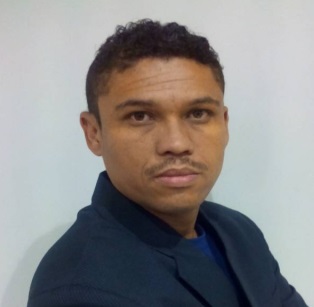
Gross human rights violations rife when labour cases are drawn out

In Namibia, there appears to be a misperception (whether due to negligence or intention is highly debatable) among supposedly learned officers of the law from amongst others the Ministry of Labour and private organisations, and in my experience, also fellow Labour Consultants, lawyers and unions representing the rights and interests of workers, that LABOUR RIGHTS ARE NOT HUMAN RIGHTS.
This inability of the relevant officials, is further fostered by human rights institutions and their lack of skill and knowledge and or willingness to internalize and or accurately articulate to government officials that reality.
The Labour Act 11 of 2007 was created to ‘consolidate and amend the labour law; to establish a comprehensive labour law for all employers and employees; to entrench fundamental labour rights and protections; to regulate basic terms and conditions of employment; to ensure the health, safety and welfare of employees; to protect employees from unfair labour practices; to regulate the registration of trade unions and employers’ organisations; to regulate collective labour relations; to provide for the systematic prevention and resolution of labour disputes; to establish the Labour Advisory Council, the Labour Court, the Wages Commission and the labour inspectorate; to provide for the appointment of the Labour Commissioner and the Deputy Labour Commissioner; and to provide for incidental matters.’
Chapter 3 of the Namibian Constitution with emphasis on Article 5, 8, 9, 10, 12, 19, 21, 22, 23, 24 and 25 is captured in the purpose and preamble and all sections of the Labour Act 11 of 2007.
The above already is evidence that LABOUR RIGHTS ARE IN FACT HUMAN RIGHTS. In short the Labour Ministry acts in direct conflict to paragraph 2 above which is illustrated in the example below. Where labour rights are suspected of being violated, it qualifies anyone in the Namibian society to lay complaints of human rights violations at the Ombudsman – either against the employer or the Labour Ministry itself when it prevents access to justice by taking decisions against the welfare of workers eg. denying applicants their choice of representation, denying applicants a fair trial, make biased awards, etc.
As an example, at the Otjiwarongo Office of the Labour Commissioner one of the arbitrators is constantly not concluding cases due to (apparent mental health issues) and apparent general ill health resulting in a sizable number of cases which have been dragging for years – some even 4 or 5 years and blatantly refusing worker representatives, refusing to recuse self from cases, disregarding any evidence of procedural and substantive unfairness provided by ex-employees and their representatives, issuing irrational adjudications or awards against Applicants, etc.
The Office of the Labour Commissioner and the Ministry itself are allowing this person to disregard the authority of the Labour Commissioner through various means for many years now, while the Office of the Labour Commisioner and that of the Minister on its part are not responsive to complaints from the public and even enquiries from the Office of the Ombudsman.
For the above, there is much evidence to back-up these statements. This is not an isolated situation in Otjiwarongo as similar reports and complaints come from across the country.
In recent weeks the rights/powers of the workers and that of our leading human rights organisations and the Office of the Ombudsman have been further boosted and made clearer with the convention of the International Labour Organisation, Violence and Harassment Convention, 2019 (No. 190) which Namibia ratified on 09 December 2020 (accessible at https://c190guide.ilo.org/en/).
According to the United Nations, Ratification defines the international act whereby a state indicates its consent to be bound to a treaty if the parties intended to show their consent by such an act. When a treaty or convention is ratified, it requires states to the treaty to implement it at the domestic level and to enact the necessary legislation to give domestic effect to that treaty. Namibia already has the legal framework in place, i.e The Constitution, the Labour Act, Criminal Procedures Act, etc. The issue encountered in Namibia and as with many other ratified conventions and treaties is its internalization.
Internalization of a treaty or convention is achieved through and only through awareness-raising of which the Friedrich Ebert Foundation has been the only institution in Namibia (according to my personal knowledge) making notable efforts in doing so since the ratification of ILO convention C190 and many other human rights(including labour/worker rights) conventions before it.
According to the United Nations and the African Union (Namibia is a member of both) any person (natural or juristic) may file or report human rights violations. Thus I encourage workers, or anyone who is aware of human rights violations at work or violations of our labour laws to approach the Office of the Labour Commissioner and or Labour Inspectorate in the Ministry of Labour, the Office of the Ombudsman, the Social Security Commisssion, the Friedrich Ebert Foundation or myself John Saunderson, Labour Consultant and Human Rights Defender at [email protected] or 0815931916).













































